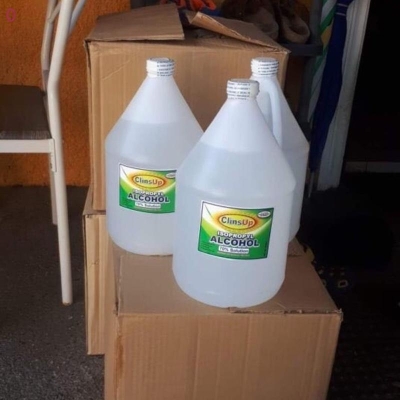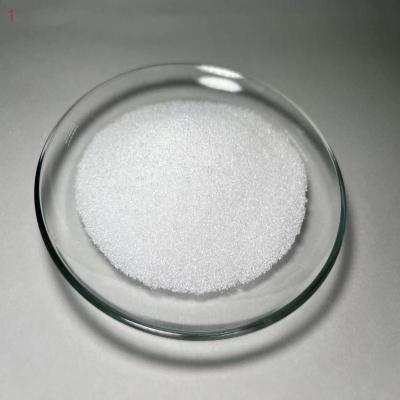-
Categories
-
Pharmaceutical Intermediates
-
Active Pharmaceutical Ingredients
-
Food Additives
- Industrial Coatings
- Agrochemicals
- Dyes and Pigments
- Surfactant
- Flavors and Fragrances
- Chemical Reagents
- Catalyst and Auxiliary
- Natural Products
- Inorganic Chemistry
-
Organic Chemistry
-
Biochemical Engineering
- Analytical Chemistry
-
Cosmetic Ingredient
- Water Treatment Chemical
-
Pharmaceutical Intermediates
Promotion
ECHEMI Mall
Wholesale
Weekly Price
Exhibition
News
-
Trade Service
On October 15, the China Association for Quality released the 2020 China New Energy Automobile Industry User Satisfaction Index (NEV-CACSI) evaluation results in Beijing.
In 2020, China’s New Energy Vehicle Industry User Satisfaction Index (NEV-CACSI) is 78 points (out of 100 points), which is 1 point lower than that of petrol vehicles and is close to the level of petrol vehicles.
Market competition promotes more and more new energy automobile companies to provide competitive products and services.
Rich products and structural upgrades fully meet user needs.
The brand image and quality of new energy vehicles continued to improve.
The main reason for the improvement of the perceived quality of new energy vehicles is the overall improvement of service quality.
Xia Bin, the research director of China Quality Guoyou Evaluation Technology (Beijing) Co.
Evaluation data show that the complaint rate of pure electric vehicles in 2020 is 20.
The poor performance of new energy vehicle products.
The evaluation data showed that the quality and reliability satisfaction score was 78 points, a decrease of 0.
3 points year-on-year.
The quality and reliability satisfaction of plug-in hybrid vehicles dropped by 0.
8 points year-on-year, while pure electric vehicles improved slightly.
New energy vehicle performance and design satisfaction scores were 77 points, a year-on-year decrease of 0.
8 points.
The quality and reliability satisfaction of plug-in hybrid vehicles dropped by 1 point year-on-year, and pure electric vehicles dropped by 0.
1 point.
The number of failures of one hundred new plug-in hybrid vehicles has increased significantly year-on-year.
In 2020, there were 96 failures of 100 new plug-in hybrid vehicles, an increase of 18 times compared with the same period last year.
Among them, the failure times of the four major systems of "driving steering and braking", "interior", "engine" and "body appearance" accounted for about 61% of the total, an increase of 16 times over the same period last year.
The main faults mentioned by users are heavy interior odor, high tire noise during driving, high wind noise, high engine noise/noisy, and obvious vibration of the vehicle body during driving.
The failure rate of traditional systems (components) such as "interior", "driving steering brake" and "body appearance" of pure electric vehicles has been significantly reduced.
In 2020, there were 102 failures of 100 new pure electric vehicles, a year-on-year decrease of 18 times.
Among them, the number of failures of the interior trim and driving steering brake both decreased by 5 times year-on-year, and the number of exterior failures of the vehicle body decreased by 2 times.
The main fault problems mentioned by users are heavy interior smell and loud wind noise.
The peculiar smell of the interior has decreased 7 times year-on-year, and the abnormal attenuation of the cruising range has decreased 2 times year-on-year.
There is still a gap between the performance design satisfaction level of pure electric vehicles and that of fuel vehicles.
In 2020, China's pure electric vehicle performance design satisfaction was 76.
7 points, a decrease of 0.
4 points year-on-year and 1.
3 points lower than that of fuel vehicles.
In the future, pure electric vehicles should focus on improving the field of vision and driving safety, the performance of the driver's seat, instrument panel and body interior.
The performance level of elements such as the in-car mute effect, smell and charging speed of pure electric vehicles needs to be further improved.
There is still a gap between current services and user expectations.
What users want most is affordable, convenient, professional, caring and reliable.
The main problems of the current service are: lack of communication with car owners, poor service experience in return visits; waiting for service reception, insufficient parts and waiting, cumbersome procedures, and no door-to-door pick-up and delivery service; maintenance technology is not good enough, and the fault cannot be solved at one time; The service process is not transparent, and it is impossible to watch the service scene in real time; the facilities are not complete, especially the charging is inconvenient.
New energy vehicle service providers still need to effectively solve user pain points, fully meet user needs, and further improve after-sales service satisfaction.
It is understood that since 2015, the China Quality Association has organized and carried out the China New Energy Automobile Industry User Satisfaction (CACSI) evaluation for 6 consecutive years, and regularly publishes the evaluation results to the society every year.
The main categories of new energy CACSI evaluation in 2020 include plug-in hybrid cars, plug-in hybrid SUVs, pure electric cars and pure electric SUVs.
The evaluation targets are the 37 brand models with the largest sales in 2020, involving 17 automobile manufacturers across the country.
The survey scope covers 39 key cities in the five major market regions of the east, south, west, north and central.
The survey methods were face-to-face interviews and online surveys, and a total of 2901 valid samples were collected.
The investigation time is from May 1st to August 30th, 2020.
The investigation method adopts fixed-point interception interviews and telephone appointment interviews.
The evaluation index system is constructed according to the four dimensions of overall satisfaction evaluation, quality reliability evaluation, performance design evaluation and after-sales service evaluation.
The survey was organized and implemented by China Quality Guoyou Evaluation Technology (Beijing) Co.
, Ltd.
CACSI adopts an advanced global unified standard evaluation model, and the evaluation results are stable and statistically significant.
It has important guiding significance for users to buy cars, or for manufacturers to improve quality and enhance market competitiveness.
According to the new energy category and vehicle structure category, the market segments are comprehensively divided.
The models with the first NEV-CACSI (New Energy Vehicle Comprehensive Satisfaction Index) (including the tie first) in each segment are:
A00-class pure electric cars: SAIC-GM-Wuling Baojun E100/E200, Great Wall Motors Euler R1
A-class pure electric cars: BYD Qin EV/Qin Rro EV, GAC New Energy Aion S
A0-class pure electric SUV: BAIC New Energy EX3
A-class pure electric SUV: Weimar EX5
B-class/C-class pure electric SUV: Weilai ES6
Plug-in hybrid car: BMW Brilliance 5 Series PHEV
Plug-in hybrid SUV: SAIC Volkswagen Tiguan L PHEV
The first new energy after-sales service satisfaction index is: BYD, BAIC New Energy
Table 1 Customer Satisfaction of Various Brands and Models
Table 2 After-sales service satisfaction of each brand of new energy vehicles
Transfer from: China Central Broadcasting Network







